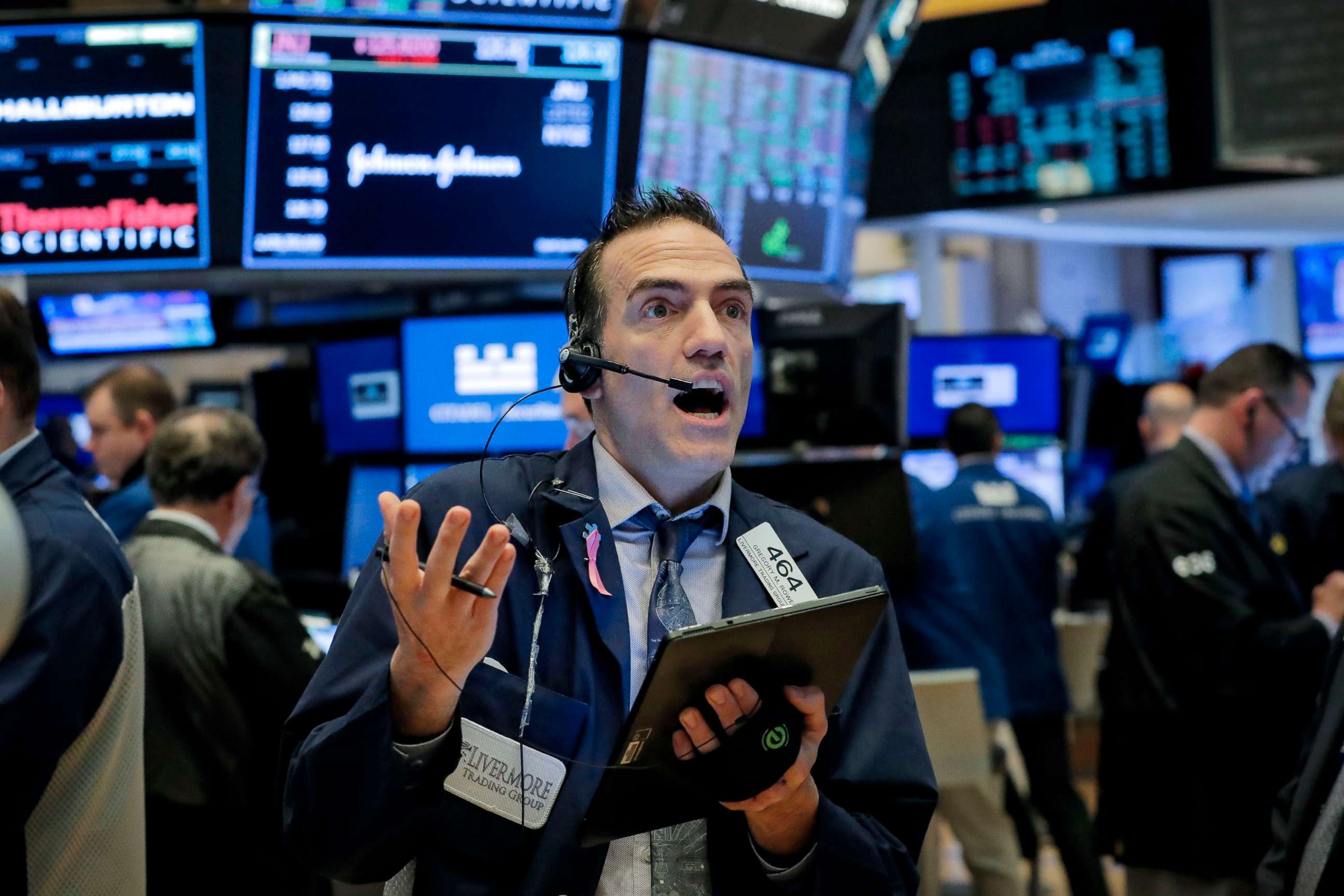Dow loses 1/3 of value in a month as another brutal trading week ends
Friday's fall comes after weeks of unprecedented market volatility.
U.S. financial markets tumbled again on Friday, culminating a week of major losses as the coronavirus crisis continues to sow anxiety among investors.
Despite an opening jump of about 1.5% early Friday, the Dow Jones Industrial Average closed down 913 points, about 4.6%, as the index has plummeted by more than one-third over the last month. The S&P 500 and Nasdaq similarly slipped by 4.3% and 3.8%, respectively.
"After being higher early on, U.S. stocks have turned lower in continued volatile action, as investors remain wary amid the spreading of the COVID-19 pandemic, while weighing the massive efforts worldwide to combat the economic impact of the outbreak," the analyst team at Charles Shwab wrote in a commentary Friday. "Treasury yields are lower, and the U.S. dollar is losing ground, slowing its recent surge, while crude oil prices are trading to the downside and gold is higher."
Among the worst performers Friday were the Walt Disney Co., 3M Co., and Coca-Cola, which all shed around 9%.
The streak of unprecedented volatility has roiled Wall Street for weeks amid the global pandemic. The Dow is now lower than when President Donald Trump was inaugurated in 2017.
In a report from Moody's Financial Services on Friday, analysts said that "a sharp contraction of the global economy, at least in the second quarter, appears imminent."
"Uncertainty will remain for at least several months as to how long it will take to contain the spread of the virus and how businesses and households will cope with the resulting financial losses," the report added. "Financial market volatility is at levels that last occurred during the global financial crisis."
The burden of the downturn will disproportionately hurt the transportation sector, the energy industry, hospitality, healthcare and consumer services, especially hotels and restaurants, according to Moody's.

Amid the financial uncertainty, the Federal Reserve has pulled out all the stops to help boost the economy, announcing approximately half a dozen actions it would take, including slashing interest rates and launching a short-term lending facility.
Lawmakers also pledged to quickly approve a $1 trillion COVID-19 economic stimulus package that would send $1,200 checks to Americans making up to $75,000 per year, based on their fiscal year 2019 tax filing.
The coronavirus pandemic has plunged the Dow, S&P 500 and Nasdaq into bear market territory. In just weeks, all three indices tumbled roughly 30% from February highs.




